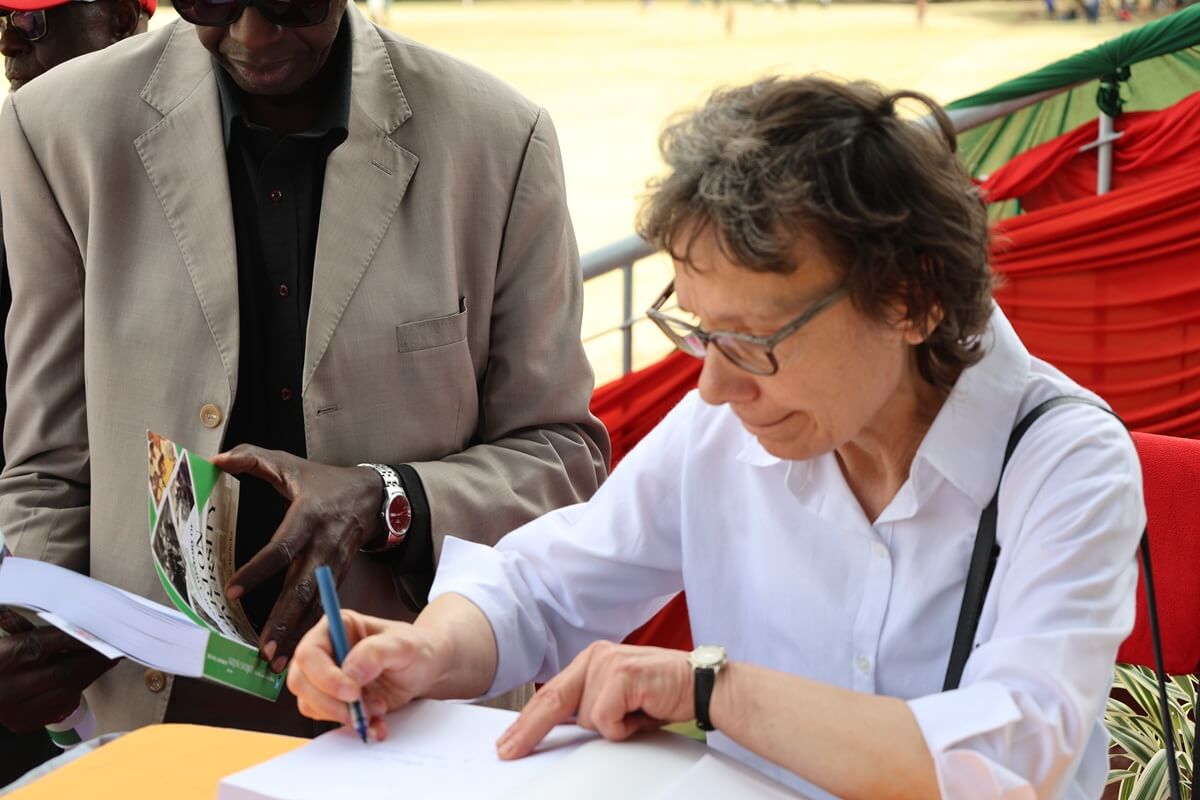On Monday, 3rd February 2025, Egerton University had the privilege of hosting Prof. Nada Fadul, Associate Dean at the University of Nebraska Medical Centre, USA. Prof. Fadul was warmly received by Prof. Bernard O. Aduda, Deputy Vice Chancellor (Academic, Research, and Extension), who represented the Vice Chancellor during the visit. The meeting provided a platform for discussions on research collaborations, particularly in the fields of HIV research and infectious diseases.
During the courtesy call, Dr Clarence Maikuri Mangera, a researcher specializing in mosquito-borne infections, shared insights into his ongoing work. He detailed efforts to establish a state-of-the-art laboratory at the Department of Biochemistry and Molecular Biology, along with the Infectious Ecology and Control Lab, which would be instrumental in advancing infectious disease research.
Dr Bartholomew N. Ondigo reflected on his previous interactions with Prof. Fadul during a recent conference in Nairobi. He emphasized Egerton University's strategic position near Nakuru Level 5 Hospital and its robust faculties as key factors in fostering successful interdisciplinary research collaborations. Dr Ondigo expressed optimism that such partnerships would significantly contribute to the fight against HIV and other infectious diseases in the region.
Prof. Nada Fadul provided an overview of her academic and professional journey, highlighting her background in Sudan and education at the University of Khartoum. She underscored the need for showcasing Africa’s research capabilities and the importance of interdisciplinary collaborations in tackling health challenges. Prof. Fadul also addressed the impact of the U.S. withdrawal of aid under President Donald Trump, emphasizing the need for African-led initiatives in rebuilding research efforts and healthcare systems.
Prof. Steve Omondi Oduor, Dean of the Faculty of Science, reaffirmed the University’s commitment to supporting interdisciplinary research in HIV and infectious diseases. He acknowledged the importance of fostering international collaborations to advance research and improve public health outcomes.
In his closing remarks, Prof. Bernard O. Aduda commended Prof. Fadul for her willingness to collaborate with Egerton University. He emphasized that successful partnerships are built on sustained commitment and interdisciplinary cooperation. Prof. Aduda also encouraged researchers to integrate various disciplines, such as agriculture and social sciences, into their work, highlighting the vital link between food systems and public health.
The visit marked a significant step toward strengthening international research collaborations, with both institutions expressing hope for a long-term partnership in addressing pressing health challenges in Africa.








